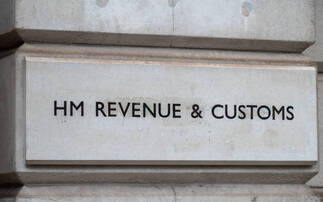The Office of Fair Trading (OFT) has concluded the £5.73bn UK dentistry market is not always working in the best interests of patients.
An OFT study of the market found patients have insufficient information to make informed decisions about their choice of dentist and the dental treatments they receive.
Alongside this, a survey conducted as part of the study suggested that each year around 500,000 patients may be provided with inaccurate information by dentists regarding their entitlement to receive particular dental treatments on the NHS.
John Fingleton, chief executive at the OFT, said: "We expect to see robust action taken against such potential misconduct by dentists."
The OFT report also indicates that consumers should have access to clear information about treatment costs and specifically an estimate of charges for proposed treatment.
Dr Roger Matthews, chief dental officer at Denplan, said transparency of costs is paramount. He said: "A basic and ‘indicative' price list should be provided by the dental practice and certainly our member dentists have always been recommended to follow this procedure.
"OFT research showed that whereas only just over half (53%) of consumers understood NHS costs and what was available, more than nine in ten (91%) of those with dental plans understood the costs and cover provided."
However, the report also highlights the issue that dentists are selling schemes that are priced to reflect the dental health of the patient.
The British Dental Association has agreed to develop a ‘robust and effective' code of practice covering the sale of dental payment plans.
Andrew Bower, managing director of National Dental Plan (NDP), commented that corporate dental plans are flat rated.
He said: "The policies mentioned in the report are sold by dentists and the report highlighted that 20% of those who joined a dental payment plan felt they were under pressure to sign up and therefore were unable to make an informed decision.
"Corporate dental plans are sold via the workplace by an insurer or a regulated intermediary who are regulated by the FSA. This means all information in terms of premiums, treatment reimbursements and terms & conditions are provided at point of sale."
The report also raises concerns about continued restrictions preventing patients from directly accessing dental care professionals, such as hygienists, without a referral from a dentist. The OFT considers these restrictions to be unjustified.
The OFT has identified a wide-ranging package of recommendations, which includes:
• calling on NHS commissioning bodies, the General Dental Council and the Care Quality Commission to enforce existing rules which require timely, clear and accurate information to patients about prices and available dental treatments.
• To remove restrictions preventing patients from making appointments to see dental hygienists, dental therapists and clinical dental technicians directly.
• The OFT is urging the Department of Health to redesign the NHS dental contract to facilitate easier entry into the market by new dental practices and allow successful practices to expand.
• Simplification of the complaints process - the OFT considers that the current system should be reformed to make it simpler, easier and less time consuming for patients and dentists to resolve complaints.
Fingleton concluded: "This study has also highlighted that the current NHS dental contract in England may well not be working in the best interests of patients. Reform in both these areas is needed without delay.'"












